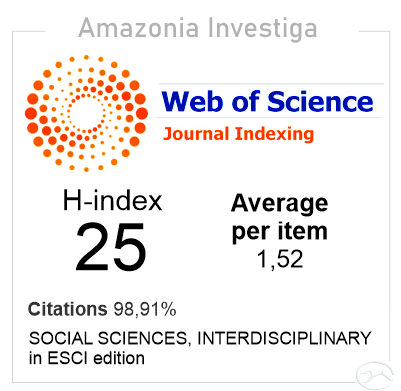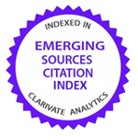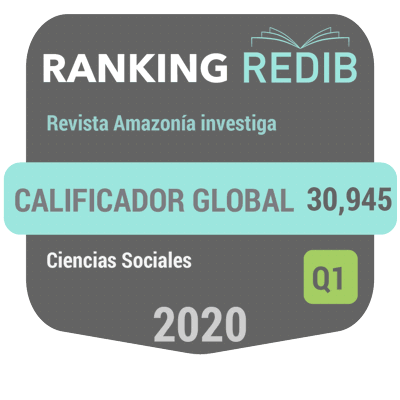The potential impacts of digital transformation on organizations
DOI :
https://doi.org/10.34069/AI/2023.64.04.1Mots-clés :
Digitalization, Digitization, Digital Transformation, Innovation Adoption, Business Process Management.Résumé
Digital Transformation is the new trend in all industries. Although, the term’s usage in the industries is still vague and ambiguous, many organizations have claimed that they have begun their digital transformation journey or have a plan to do so. For those reasons there is an urgent necessity to understand what digital transformation is? and how to evaluate its impact on an organization. Thus, this paper seeks to investigate the potential impact of digital transformation on organizations. This study utilized a qualitative research method of investigation, semi-structured interviews with different participants from different organizations were performed. Two major areas were identified to be the most susceptible organizations’ functional areas that impacted by the transformation, and they synthesized into a cohesive model. The model includes Organization Business Processes Optimization, Organizational Information Technology which led to organization innovation. The model can help organizations to identify and consider the impact digital transformation.
Téléchargements
Références
Al-Mamary, Y. H. S., Abdulrab, M., Alwaheeb, M. A., & Alshammari, N. G. M. (2020). Factors impacting entrepreneurial intentions among university students in Saudi Arabia: testing an integrated model of TPB and EO. Education+ Training, 62(7/8), 779-803.
Aljlayel, N. A. M. (2020). Business process management adoption and culture: a case of Saudi Arabia, (Doctoral dissertation) RMIT University, Australia.
Alnemer, H. A. (2022). Determinants of digital banking adoption in the Kingdom of Saudi Arabia: A technology acceptance model approach. Digital Business, 2(2), 100037.
Aseeri, M., & Kang, K. (2023). Organisational culture and big data socio-technical systems on strategic decision making: Case of Saudi Arabian higher education. Education and Information Technologies, 1-26.
Ashford, N. A. (1993). Understanding technological responses of industrial firms to environmental problems: Implications for government policy. Chapter.
Bharadwaj, A., El Sawy, O. A., Pavlou, P. A., & Venkatraman, N. V. (2013). Digital business strategy: toward a next generation of insights. MIS quarterly, 471-482.
Chanias, S., & Hess, T. (2016). "Understanding digital transformation strategy formation: insights from europe’s automotive industry" PACIS 2016 Proceedings. 296. https://aisel.aisnet.org/pacis2016/296
Charmaz, K. (2006). Constructing grounded theory: A practical guide through qualitative analysis. sage.
Dibbern, J., & Hirschheim, R. (2020). Introduction: Riding the waves of outsourcing change in the era of digital transformation. Information systems outsourcing: The era of digital transformation, 1-20.
Eisenhardt, K. M. (1989). Building theories from case study research. Academy of management review, 14(4), 532-550.
Espig, A., Mazzini, I. T., Zimmermann, C., & de Carvalho, L. C. (2021). National culture and innovation: a multidimensional analysis. Innovation & management review.
Fitzgerald, M., Kruschwitz, N., Bonnet, D., & Welch, M. (2014). Embracing digital technology: A new strategic imperative. MIT sloan management review, 55(2), 1.
Hartl, E., & Hess, T. (2017). "The Role of Cultural Values for Digital Transformation: Insights from a Delphi Study" AMCIS 2017 Proceedings, 8. https://aisel.aisnet.org/amcis2017/Global/Presentations/8
Hess, T., Matt, C., Benlian, A., & Wiesböck, F. (2020). Options for formulating a digital transformation strategy. In Strategic information management (pp. 151-173). Routledge.
Kane, G. C., Palmer, D., Phillips, A. N., Kiron, D., & Buckley, N. (2015). Strategy, not technology, drives digital transformation. MIT Sloan Management Review and Deloitte University Press, 14(1-25).
Kaur, C. (2020). The cloud computing and internet of things (IoT). International Journal of Scientific Research in Science, Engineering and Technology, 7(1), 19-22.
Mahmood, F., Khan, A. Z., & Khan, M. B. (2019). Digital organizational transformation issues, challenges and impact: A systematic literature review of a decade. Abasyn University Journal of social sciences, 12(2).
Matarazzo, M., Penco, L., Profumo, G., & Quaglia, R. (2021). Digital transformation and customer value creation in Made in Italy SMEs: A dynamic capabilities perspective. Journal of Business Research, 123, 642-656.
Matt, C., Hess, T., & Benlian, A. (2015). Digital transformation strategies. Business & information systems engineering, 57(5), 339-343.
Mergel, I., Edelmann, N., & Haug, N. (2019). Defining digital transformation: Results from expert interviews. Government Information Quarterly, 36(4), 101385.
Mills, J., Bonner, A., & Francis, K. (2006). The development of constructivist grounded theory. International journal of qualitative methods, 5(1), 25-35.
Mitchell, B., & Alfuraih, A. (2018). The Kingdom of Saudi Arabia: Achieving the aspirations of the National Transformation Program 2020 and Saudi vision 2030 through education. Journal of Education and Development, 2(3), 36.
Mithas, S., Tafti, A., & Mitchell, W. (2013). How a firm's competitive environment and digital strategic posture influence digital business strategy. MIS quarterly, 511-536.
Myers, M. D. (2019). Qualitative research in business and management. Sage.
Piccinini, E., Hanelt, A., Gregory, R., & Kolbe, L. (2015). "Transforming Industrial Business: The Impact of Digital Transformation on Automotive Organizations" ICIS 2015 Proceedings, 5. https://aisel.aisnet.org/icis2015/proceedings/GeneralIS/5
Reis, J., Amorim, M., Melão, N., & Matos, P. (2018, 2018). Digital transformation: a literature review and guidelines for future research. Trends and Advances in Information Systems and Technologies, 16, 411-421.
Rogers, D. L. (2016). The digital transformation playbook: Rethink your business for the digital age. Columbia University Press.
Singh, A., & Hess, T. (2020). How chief digital officers promote the digital transformation of their companies. In Strategic Information Management (pp. 202-220). Routledge.
Strauss, A., & Corbin, J. (1998). Basics of qualitative research techniques. Sage Publications, Inc.
Szalavetz, A. (2019). Digitalisation, automation and upgrading in global value chains–factory economy actors versus lead companies. Post-Communist Economies, 31(5), 646-670.
Vial, G. (2019). Understanding digital transformation: A review and a research agenda. The journal of strategic information systems, 28(2), 118-144.
Vision2030. (2021). The National Transformation Program. https://www.vision2030.gov.sa/v2030/vrps/ntp/
Zhao, X., Sun, X., Zhao, L., & Xing, Y. (2022). "Can the digital transformation of manufacturing enterprises promote enterprise innovation?", Business Process Management Journal, 28(4), pp. 960-982. https://doi.org/10.1108/BPMJ-01-2022-0018

































































.gif)






